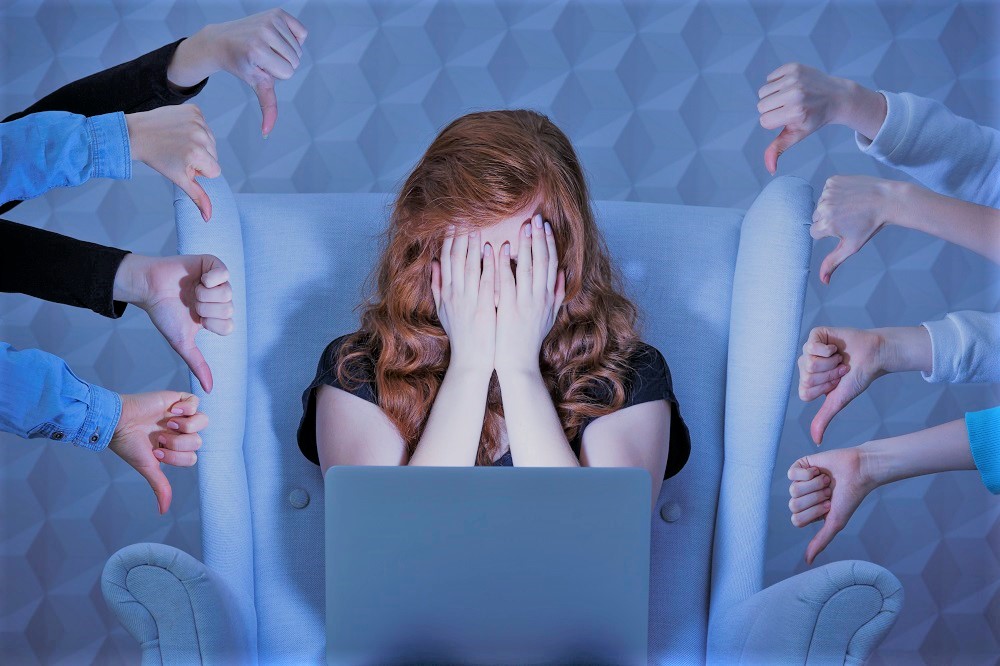Scrolling through our social media feeds, we may have noticed at one time or the other that our moods changed because of what we saw. For most of us, the effect of social media goes beyond subtle mood fluctuations; research has shown that heavy use of social media is linked to a number of mental health issues including rising rates of depression, anxiety and suicidal behavior among America’s youth. But how does this affect us on individual levels?
Are there statistics to prove that one group is more affected than the other? Do these hours spent on Instagram and Snapchat mess with our minds differently? It may surprise you to know that according to a new study, social media has some gender-specific impact on the mental health of young adults – specifically, it affects girls more than boys. Research on this study is however conflicting.
In a study published this spring, it was found that teenagers’ use of social media likely doesn’t have a profound effect on their mental health and life satisfaction despite the experts’ warnings. In a recent commentary, Ann DeSmet, a researcher in the department of movement and sports sciences at Ghent University in Belgium stated that “Social media use need not be as negative as often presumed” if teenagers can be encouraged to get enough sleep and exercise and also deal with cyber-bullying.
However, in a more recent study published in the Lancet Child and Adolescent Health Journal, an examination of several factors that could affect young people’s health was conducted. From across 900 schools in England, over 12000 young people were interviewed at two separate times; the first when they were aged 13-14 and subsequently when they were 16. At the age of 13-14, they answered questions regarding the frequency of their social-media use, their level of in-person social interaction, as well as their health and demographic profiles.
Then subsequently, at the age of 16, they provided information about their social media use and reviewed the number of times they had been cyber-bullied, their hours of sleep and physical activity as well as their self-examined mental health standards. They rated their “Life Satisfaction, Feeling life is worthwhile, happiness and anxiety” on a scale of 1-10 and this led to the conclusion of the survey. This research excluded trans and non-binary children.
From the data collected, the study revealed that mental health damages were strongly related to a higher frequency of social media use in girls due to the combined effects of cyber-bullying, lack of sleep and lack of physical activity. Other factors which the authors did not reveal were said to be operative in boys. Study co-author Dasha Nicholls, who leads the Child and Adolescent Mental Health research team at Imperial College London made it clear that it is not social media platforms that have a negative effect on the mental health of young adults. It is however, the heavy use of social media that creates opportunities for young people to experience challenges to their mental health.
According to BUSTLE, the conclusions of this study, especially the gendered aspect which was primarily based on self-reported reflections remains questionable. In a 2016 study published in the BMC Public Health Journal, it was concluded that on a global scale, women self-reported higher rates of poor physical and mental health than men.
The same conclusion was revealed in a 2005 study in the Sex Roles Journal which stated that men self-reported less depression than women. These self-reported reflections existed long before gendered differences in mental health factors were recorded. It is however not surprising to see that men reported fewer experiences of depression as according to a 2017 study published in the Family Medicine and Primary Care Journal, men are socialized to consider depression a “feminine” struggle.
This is not to say that other gendered statistics which for example states in a study published in the International Journal of Mental Health and Addiction that social media exposes girls to cyber-bullying more than boys are incorrect because boys most definitely tend to engage more in cyber-bullying.
However, considering the misogynistic socialization and toxic masculinity under which boys are taught to express pain as anger instead of sadness and hide their true feelings while expressing emotion as aggression, one cannot but question this new research which states that social media hurts girls more than boys as the study was primarily conducted based on self-reported reflections of both boys and girls. The recorded gendered differences in responses may very well have biased the results as it is reasonable to conclude that boys in this survey naturally felt like they need to hide their sadness and anxiety.
Further study and more thorough understanding of the relationship between gendered socialization and mental health is therefore crucial in addressing the relationship between social media and mental health in young adults. “The idea is to promote other positive habits rather than saying to kids, ‘You can’t be on social media as much,” Jill Emanuele, senior director of the Mood Disorders Center at the Child Mind Institute in New York stated in an interview with Today.
Emanuele was concerned that the study had inconclusive results for boys. In her experience, both girls and boys are affected by social media cyber-bullying and inadequate sleep. In the end, no matter how children of each gender have been taught to self-report mental health issues, children, irrespective of gender deserve all the mental health care they need.
More You Use Social Media, The Worse You Feel; New Study Confirms














